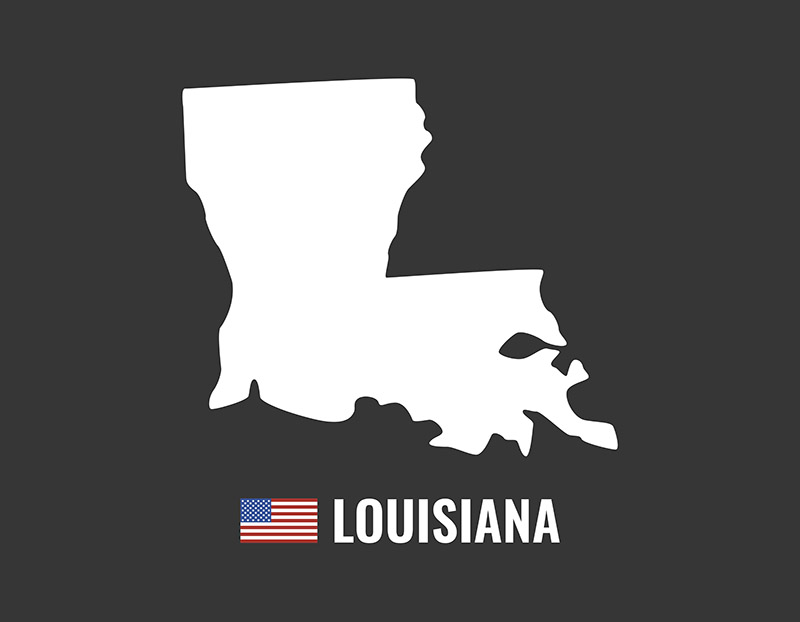888 Holdings, based in London, plans a major rebrand to become Evoke plc.
The company, listed on the London Stock Exchange, is shifting its focus towards prominent European markets such as Denmark, Spain, Italy, and the UK, coupled with initiatives to cut costs.
Leadership Aims for Revival
With Per Widerström at the helm since October, 888 Holdings has been facing an 18-month period of challenges that have impacted its stock performance. Widerström, leveraging his extensive experience in online gambling, is set on revitalizing the company’s fortunes amidst managerial changes and regulatory hurdles.
Refocusing Efforts and Financial Goals
The company’s refocused efforts on key markets, which generate 85% of its revenue, resulted in an income boost to £1.7 billion in 2023 from £1.2 billion in 2022. Additionally, the company seeks to significantly lower its debt, heightened by the 2021 acquisition of William Hill’s international operations.
Exiting the U.S. Market for Efficiency
In a move towards operational efficiency, 888 Holdings plans to withdraw from its U.S. consumer sports wagering venture, anticipating considerable cost reductions. This step includes terminating its partnership with Authentic Brands Group, which allowed exclusive use of the Sports Illustrated brand for online gaming and betting in the U.S.
The Challenge of Rebranding
Aiming for a brand that better mirrors its diverse brand model and commitment to top-tier betting and gaming experiences, the company is cautious of the inherent risks in rebranding, learning from others in the industry.
Reviewing Fiscal Year 2023
Despite a net loss, 888 Holdings saw an uplift in revenue and adjusted EBITDA in 2023. The company is fine-tuning its operational costs and adopting a market approach that prioritizes sustainable practices, especially in the UK, targeting recreational customers for higher margins.
Evoke plc: A Fresh Direction
The transition to Evoke plc represents the company’s commitment to a new direction and financial aspirations. The launch of a Value Creation Plan (VCP) aims at operational efficiency and a streamlined market strategy, distinguishing between core markets for growth and others for maximized returns.
Confidence in the Future
CEO Widerström is optimistic about the company’s direction and its potential for success, driven by technology, market leadership, and brand strength. Evoke plc aims for revitalization and growth with clear targets for the upcoming years.
As 888 Holdings transforms into Evoke plc, it heralds a move towards optimizing its market presence and financial stability. Under experienced leadership and with a vision, the company will be ready for what the future of the industry holds.
CEO Departure and Interim Appointment
Affiliate marketing giant Catena Media has been undergoing major changes recently, kicking off with the sudden resignation of CEO Michael Daly in late February 2024. Daly, who had served as CEO since March 2021, stepped down with immediate effect after overseeing a disappointing 2023 for the company.
Under Daly’s tenure, Catena saw a sharp decline in revenue, with its crucial US market revenue dropping 21%. This poor performance, coupled with a 75% year-over-year plunge in Catena’s share price, led to calls for Daly’s resignation from industry figures like STS founder Mateusz Juroszek.
Following Daly’s exit, Pierre Cadena, Catena’s Vice President of Corporate Strategy, was appointed as the interim CEO while the company searches for a permanent replacement.
New CEO Appointment and Board Revamp
On March 25th, 2024, Catena Media announced the appointment of Manuel Stan as its new permanent CEO, effective July 1st. Stan, a former Kindred Group executive with over 16 years of experience, will be based in Las Vegas and tasked with driving Catena’s growth in the North American market.
Alongside the CEO appointment, Catena also proposed a board reshuffle, with Erik Flinck, the chairman of digital health startup Dr Hud, nominated as the new chairman. Dan Castillo, a long-time Catena investor, was proposed as a new board member, while Øystein Engebretsen, Theodore Bergquist, Adam Krejcik, and Sean Hurley were nominated for re-election.
The proposed changes aim to reduce the size of Catena’s board from seven to six members, with outgoing members including former chairman Göran Blomberg, Esther Teixeira-Boucher, and Austin Malcomb.
Strategic Shift and Cost Optimization
Catena’s leadership overhaul comes as the company implements a strategic shift to focus on the North American market while divesting assets in Europe. In August 2023, Catena sold its UK and Australian online sports brands to Moneta Communications as part of this strategy.
Additionally, the company launched a cost reduction program of around €4 million to “optimize group operations” following recent divestments. Daly had initially defended this restructuring, calling for patience as the changes took effect, but his sudden departure suggests the board’s impatience with the pace of the turnaround.
As Catena Media navigates these turbulent waters, the incoming leadership team led by Stan and the refreshed board will face significant challenges in reviving the company’s fortunes and capitalizing on the lucrative but highly competitive North American market.
In a striking testament to the resilience and stability of the gaming industry in Louisiana, the state’s casinos have collectively generated a remarkable revenue of $194.6 million in February 2024. According to the latest figures released by the Louisiana Gaming Control Board, this represents a modest yet significant 1.0% increase from the same month last year, underscoring the sector’s sustained growth amidst fluctuating economic conditions.
Lake Charles Leads Despite Minor Setback
Despite experiencing a 4.5% decline in revenue compared to February 2023, the Lake Charles gaming district emerged as the top performer, amassing $69.8 million. The Golden Nugget Lake Charles and L’Auberge Casino Resort were the major contributors, bringing in $24.8 million and $24.6 million, respectively. This showcases the district’s enduring appeal and its crucial role in the state’s gaming industry.
Revenue Growth Across Districts
Other gaming districts have also reported positive outcomes, reflecting the industry’s overall health:
- Shreveport/Bossier: With a 1.1% increase over the previous year, this district generated $48.1 million, with Margaritaville Resort Casino leading the pack.
- New Orleans: This district nearly matched Shreveport/Bossier’s performance, raking in $47.7 million and marking a notable 4.4% year-on-year growth. Harrah’s New Orleans was a significant contributor, accounting for nearly half of the district’s revenue.
- Baton Rouge: Though it reported the lowest revenue at $22.8 million, Baton Rouge witnessed the highest year-over-year increase at 10.7%. This surge is attributed mainly to the L’Auberge Casino Hotel, which contributed 65% of the district’s revenue.
Online and Retail Sports Betting: A Growing Contributor
The report also highlights the contributions of online and retail sports betting to the state’s gaming revenue, with figures standing at $30.4 million and $0.8 million, respectively. This sector’s performance is indicative of the evolving landscape of gaming in Louisiana, where traditional and digital forms of gaming coalesce to drive growth.
The Road Ahead
As the Louisiana gaming industry continues to navigate through the challenges and opportunities that lie ahead, the February revenue figures are a promising sign of its capability to maintain stability and adapt to changing market dynamics. With strategic investments and an emphasis on enhancing customer experience, the state’s casinos are well-positioned to sustain their growth trend and continue contributing significantly to Louisiana’s economy.
In a notable move within the gaming and hospitality industry, Robert Goldstein, CEO of Las Vegas Sands Corp. (LVS), has parted with a substantial portion of his company shares, marking a transaction that has captured the attention of investors and industry observers alike.
The Transaction Details
A recent filing with the Securities and Exchange Commission (SEC) has revealed that Goldstein divested 100,000 shares of Las Vegas Sands’ Class A common stock, a transaction valued at approximately $5.2 million. This sale took place last Friday, and the SEC’s Form 144 documentation provides a detailed account of this significant financial move. Post-sale, Goldstein remains deeply invested in the company, retaining 764,271,386 shares, which, at the current share price, positions his holdings around the $390 million mark.
Background and Context
Goldstein’s tenure at Las Vegas Sands spans nearly three decades, during which he has played pivotal roles, including chief operating officer and president, before stepping into the CEO shoes in 2021, following the demise of the company’s founder, Sheldon Adelson. The sale of these shares, acquired as compensation over the years, may reflect various strategic considerations, although no specific reasons for the sale have been disclosed.
A Glimpse into Executive Stock Sales
This move by Goldstein is not isolated in the gaming industry; it reflects a broader trend where executives occasionally liquidate portions of their holdings, often for personal financial strategy reasons. Earlier instances, such as DraftKings executives selling close to $80 million worth of shares and Wynn Resorts executives offloading $3 million in stock, underscore this pattern. These transactions, though personal, offer insights into the executives’ perspectives on the company’s valuation and future prospects.
Implications for Las Vegas Sands and the Gaming Industry
Goldstein’s decision to sell a fraction of his shares does not seem to diminish his overall stake in the company’s success, given his substantial remaining shareholding and vested interest through options and restricted stock units. This event adds to the narrative of executive movements within the gaming industry, providing a window for stakeholders to gauge insider sentiment about the sector’s future direction.
As Las Vegas Sands continues to play a dominant role in the global hospitality and gaming markets, industry watchers and investors will likely monitor such insider transactions closely, interpreting them as potential signals of confidence or caution regarding the company’s and the broader industry’s outlook.
In a bold legislative move, Pennsylvania State Senator Wayne Fontana is gearing up to introduce a bill aimed squarely at banning the use of credit cards for online gambling activities. This includes a broad spectrum of digital betting avenues such as online casino play, fantasy sports, iLottery, and online sports gambling. The initiative underscores a growing concern over financial hardships exacerbated by gambling debts and aims to instill a more responsible gambling environment in the Keystone State.
Details of the Proposed Legislation
Senator Fontana’s proposed bill seeks to overhaul the existing framework that currently allows Pennsylvanians to fund their online gambling accounts using credit cards. Citing alarming statistics from the 2022 Online Gambling Report, the senator highlighted that over a third of online gamblers in Pennsylvania have experienced at least one gambling-related issue. The ease with which individuals can accrue substantial debt through the convenience of credit cards, coupled with the potential for developing gambling disorders, forms the crux of Fontana’s legislative argument.
The Backdrop of Pennsylvania’s Gaming Expansion
The legislative push does not exist in a vacuum but is set against the backdrop of Pennsylvania’s significant expansion of its gaming industry in 2017. This expansion legalized various forms of gambling, including fantasy sports and online gaming, and facilitated the establishment of gaming services in non-traditional venues like truck stops and mini-casinos. Despite the economic benefits, this broadened gaming landscape has raised concerns over rising credit card debts among Pennsylvanians, further fueled by high interest rates and current inflationary pressures.
A National Concern with Local Implications
Pennsylvania’s gaming industry is a heavyweight, ranking third nationwide in terms of gross gaming revenue, which neared $5.7 billion in 2023. The state’s situation is not isolated, as the issue of credit card debt linked to online gambling is gaining national attention. With nearly forty states having legalized sports wagering, some, including Massachusetts, Tennessee, and Iowa, have already taken steps to restrict the use of credit cards for gambling, reflecting a broader acknowledgment of the financial risks involved.
Conclusion: A Call for Balance
The proposed legislation by Senator Fontana is a call to action for a balanced approach to online gambling. By addressing the direct link between credit card use and gambling-related financial woes, the initiative seeks to mitigate the negative impacts while acknowledging the complexities of the issue. As online gambling continues to offer both the thrill of potential wins and the risk of financial peril, finding a middle ground is essential for the well-being of Pennsylvania’s residents and the health of its gaming industry.






